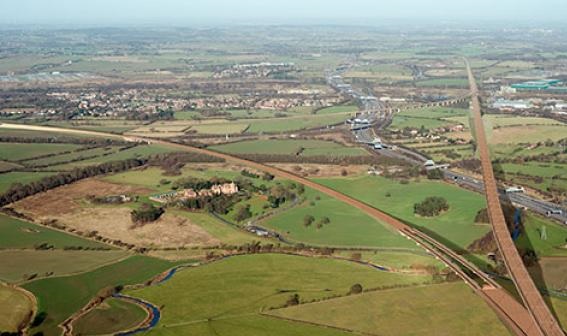
The High Speed Rail Preparation Bill to be debated in parliament tomorrow must be fair to those facing compulsory purchase of their properties, the CLA said today.
CLA President Harry Cotterell said: “HS2 has become a political football with yards of controversial media coverage. Yet all the while, farmers, other land managers and rural businesses along the proposed route are really suffering.
“With the huge level of uncertainty, they simply can’t invest in their businesses. The best the victims of compulsory purchase along the route can expect is derisory compensation, often paid late, on which they will be taxed.
“We’ve been promised fairness by the Government and want to see a proper property bond scheme, a duty of care by the acquirer and guarantees of mitigation measures put in place by this Bill.”
Former Government Minister Caroline Spelman, MP for Meriden which is on the proposed HS2 route, said: "As the paving Bill reaches its final stages in the Commons, with the help of the CLA I have tabled amendments with the aim of securing compensation which is fair and generous, as the Government has promised it should be, for those living along the route of HS2.
“These include the property bond to underpin sales, help for businesses and landowners, mitigations which offset the loss of green space and measures to ensure [compensation] payment is prompt and just."
CLA Chief Surveyor Andrew Shirley said: “If HS2 is to be the modern face of public transport, it should be matched by a 21st century compulsory purchase system, not one that harks back to the Victorian era and is in a terrible state of disrepair.
“Owners of rural property and businesses close to the proposed HS2 route are already suffering blight, and the Government needs to act quickly to resolve the issues that affect them.
“This can only be done with an effective property bond scheme which provides property and business owners with assurances they will receive the promised fair compensation so their businesses can continue to invest with certainty.”
Ralph Smyth, Senior Transport Campaigner for the Campaign to Protect Rural England, said: "It’s time to ask how well HS2 fits with a wider, sustainable vision for the country. Trying to reduce all the different costs and benefits of this huge transport scheme into a single figure simply isn’t possible. We should move away from trying to value HS2 in terms of how many pounds are returned from each pound of investment.
"The revised strategic case offers the Department for Transport a chance to show it has listened to the arguments put forward and is prepared to make changes. But the Government’s timetable for HS2 means that they are working at such a breakneck speed that we are worried that the result will only be more tinkering."
CPRE believes the strategic case has already been made for a new north-south railway because of the lack of existing capacity to run more trains. In terms of the economic case, we believe there are problems with the current proposals for HS2, as well as with the way the Government is trying to assess it.
